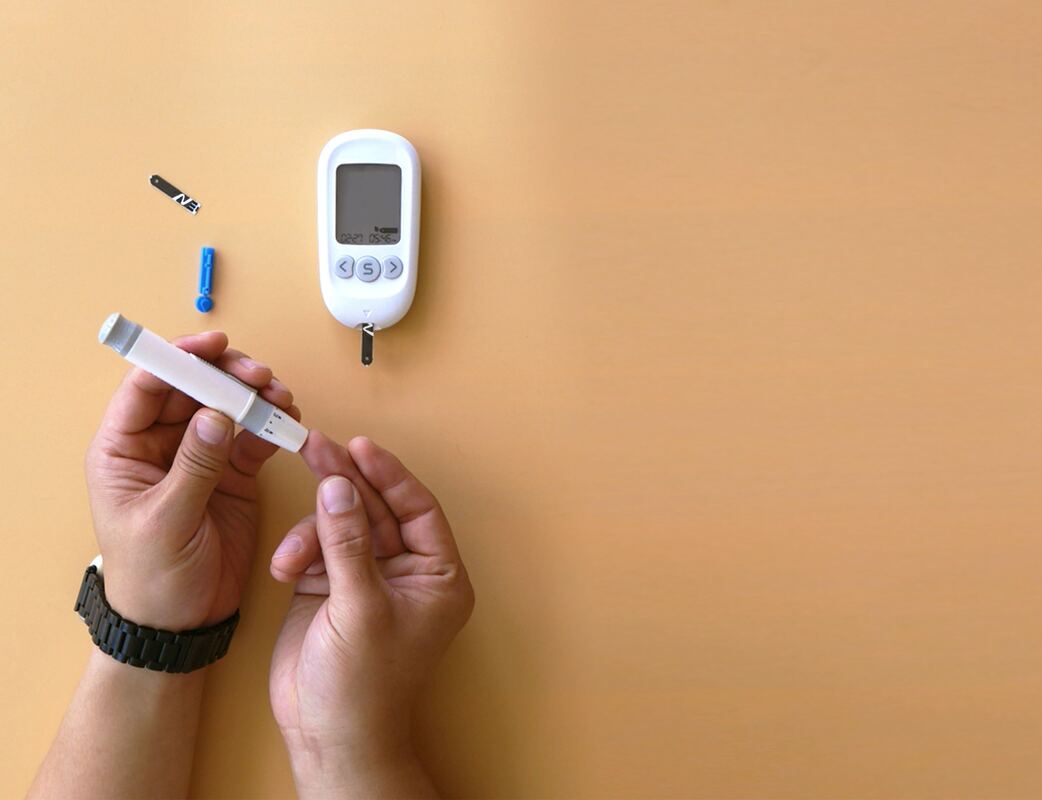|
In our busy lives, stress and anxiety is common. We may not realize how anxiety can impact our physical health, including our hearing. This blog post explores the connection between anxiety and hearing loss. It shows how these two issues can affect our health. Understanding Anxiety's Influence on HearingA quiet evening, and you find yourself straining to hear the gentle hum of your surroundings. For individuals grappling with anxiety, this scenario isn't uncommon. Anxiety, characterized by persistent worry and tension, can manifest in various physical ways, including heightened sensitivity to sound and difficulty concentrating amidst background noise. Research has found that prolonged stress and anxiety can lead to physical changes in the body. These changes can impact heart health and weaken the immune system. Surprisingly, one area significantly affected is our auditory system, responsible for processing sound waves into meaningful information. The Science Behind the ConnectionResearch shows that long-term stress, often seen in anxiety disorders, can worsen hearing problems or lead to them. Long-term stress, commonly found in anxiety disorders, can exacerbate hearing issues or even be the cause of them. The inner ear is a fragile organ that turns sound vibrations into signals for our brain. Stress hormones like cortisol can easily affect it. Dr. Sarah Lee, a renowned otolaryngologist, explains, "The inner ear relies on a finely tuned balance of neurotransmitters and blood flow. When stress hormones flood our system, they can disrupt this delicate equilibrium, potentially leading to temporary or even permanent changes in hearing sensitivity." Coping Strategies for Managing Anxiety & Hearing ChallengesDealing with anxiety-related hearing issues can be scary. However, there are 3 ways to reduce symptoms and improve your well-being.
In ConclusionUnderstanding the connection between anxiety and hearing loss is important for maintaining good hearing and overall health. Taking steps to reduce stress and anxiety can help protect your hearing and improve your quality of life. By taking steps to reduce stress and anxiety, you can protect your hearing and live a healthier, happier life.
If you feel overwhelmed or notice changes in your hearing, it is important to address anxiety. Taking care of your mental health is crucial for your ability to hear well. Remember, your well-being matters—take steps today to nurture both your mind and your ears. Contact Northumberland Hearing Center to schedule a free consultation.
0 Comments
When your blood sugar levels are not regulated, you may experience hearing loss.
Diabetes and hearing loss are common health issues among American adults. There have been reports from nearly 15% of adults in the U.S. (37.5 million) who said they experienced problems with their hearing. Symptoms of hearing loss generally worsen as a person ages. Roughly 25% of people between 65 and 74 years old have this condition. About 50% of people, at least 75 years old, sustain disabling hearing loss. There is an overlap among patients with both diabetes and hearing loss. According to the American Diabetes Association (ADA), patients with diabetes are twice as likely to have hearing loss than patients who do not have diabetes. In the U.S., patients with prediabetes blood glucose levels are more likely to have a 30% higher rate of hearing loss than patients with average blood glucose levels. Diabetes and Hearing Loss can lead to Sensory Damage. Your nervous system can become damaged from unmanaged diabetes. That can impact your whole body. A common symptom is the inability to hear high and low frequencies. Other risk factors may include heart disease, low HDL cholesterol, peripheral neuropathy, and overall poor health. If you have diabetes and chronic diseases, you should get a hearing test. Some medications related to diabetes affect a patient’s overall health, which can negatively impact their hearing. There are some things you can do to curb this problem.
How can Diabetes lead to Falls? Falls are another thing to worry about if you have diabetes and hearing loss. The vestibular system, located in the inner ear, is the sensory system that gives the fundamental sense of balance and spatial orientation on a person’s movement with balance -. The vestibular system can become damaged due to diabetes. The top complaint from patients over 70 years old, with diabetes and hearing loss, is vertigo. Hearing problems that remain untreated can harm relationships, whether they are personal or professional. These are some reasons why taking care of both diabetes and your hearing should be a priority. Better hearing can lead to better overall health by giving you more energy to live your life. Contact Northumberland Hearing Center for a hearing exam and consultation with our hearing care professionals. If you’ve ever experienced an emergency, whether medically related or due to another unfortunate disaster, some challenges may have happened when you tried to communicate. These could have included loud sirens going off, poor phone signals, or stressing over trying to communicate quickly, clearly, and efficiently, just to name a few.
For anyone who is deaf or has difficulty with their hearing, this is an additional barrier to effective communication. The Complications that Come with Communicating during Emergencies For anyone with normal hearing abilities, sirens and alarms can be so painful and loud that they need to cover their For some, especially those with high-frequency hearing loss, hearing things like sirens or smoke alarms can be challenging. Have You Ever Failed to Notice Indirect Cues that Would Alert You to Danger? Loud sirens are not the only thing that signals impending danger. The ability to hear allows you to be more aware of your surroundings - whether you notice an intruder, a car engine that doesn’t sound right, or the sound of a child’s cry. Hearing also lets you know which direction the danger is coming from. Anyone with hearing problems might unknowingly go towards danger or walk away from someone else’s dangerous situation and neglect to help that person. Listening and Speaking to First Responders Following directions from first responders or answering their questions can be challenging. Here are some tips for communicating with others during an emergency. 1. Be prepared. Emergencies are usually unexpected. However, there are ways to prepare how you will manage these situations. Plan a meeting place and what to do after the crisis occurs. Prepare a go-bag with emergency supplies stored inside. Let at least one neighbor that you are friendly with know your plans and ask them to check in on you if they hear your alarm go off. 2. Make sure your alarms and safety devices are updated and functioning correctly. Most smoke and carbon monoxide detectors will make a beeping noise, create a flashing visual cue, or vibrate if a person is in danger. Doorbells that create blinking lights or alarms for a person’s bed shake can also alert hard-of-hearing people of potential threats. 3. Keep your hearing aids on. It’ll be easier to detect danger and communicate while wearing them. Have them fully charged or a pair of new batteries on hand. Recharge the hearing aids by your bed to make them easily accessible if you are awoken suddenly at night. If you live in an area that frequently experiences earthquakes, place your hearing aids securely in a container next to your bed so they don’t fall off. Store spare batteries in a designated cool, dry place for emergencies. If you wear rechargeable hearing aids get a portable charger to place in your go-bag to access it easily. Emergency Alerts Add your name, phone number, and other information to text alerts instead of phone alerts so emergency messages can be easily accessed and followed. Consider wearing a medical bracelet. It’s a helpful way to provide information about anyone with hearing loss, allergies, or any other serious medical condition. Include details about medications you take, what type of hearing device you wear, or crucial health information. Keep means of Communication in an Emergency Supply Bag. Here are some things to keep in mind when packing your supply bag:
Other Things to Keep in Mind for Better Communication
Are You Experiencing Problems with Your Hearing Aids during an Emergency? If your hearing aids have stopped working during an emergency, rely on your other senses. Get near people who are speaking. Ask them to talk louder, slower, and enunciate their words. Focus your attention on their facial expressions and do your best at lipreading. Caregivers for the Deaf or Hard of Hearing If you care about someone hard of hearing, here’s how you can help them during an emergency:
Have good lighting so they can see your face and a quiet space without too many distractions or background noise. If you or a loved one are experiencing hearing loss and need hearing aids, contact us at Northumberland Hearing Center for a hearing evaluation and consultation. Hearing loss that stays untreated could leave you with severe consequences to your health and quality of life. Every time you hear something, your brain gets exercise. Not receiving help for hearing loss can worsen a patient’s cognitive performance because it shrinks and atrophies the brain. More cases of falls due to imbalance, hospitalizations for these outcomes, and a high risk of depression and dementia caused by social isolation - this may occur due to the challenges that come with communicating while having hearing problems.
Your ability to appreciate TV, movies, music, and nature can be futile due to difficulties with hearing. You’ll begin to feel excluded. The inability to hear can also throw you into an unsafe environment. If you can’t hear a car or emergency vehicle driving in your direction, that can put you and the driver at risk of a collision. Completing tasks at work might be more challenging, and missteps can reoccur. As a result, your income can be affected. It’s common for people with hearing loss to be in denial over their hearing problems. Instead of seeking help immediately, they’ll ask others to repeat themselves or raise the volume level to whatever they are listening to. Other practical reasons why people may not seek help immediately, or at all, is because they cannot afford it or don’t have health insurance. A network of support from family, friends, and healthcare providers is necessary for starting their lives toward better hearing. Things You Can Do for a Loved One with Hearing Loss Simply be available. This person might need you to listen to their frustrations about hearing and communicating, or maybe there was an incident they need to vent about. You could “be their ears” in social situations if they mishear something or completely miss out on what was said. Be patient and supportive, even if you have no clue what they are experiencing with their struggles. Point Out that their Hearing Loss also Affects You. Give a gentle reminder about how you and others who interact with them are also affected by their hearing loss. Whether it’s the need to repeat themselves or safety issues - the inability to hear warning sirens, oncoming vehicles, or news/weather alerts. How You Can Help a Loved One with their Hearing
Don’t Delay Receiving Help Like any health issue, the longer you wait to seek a diagnosis and treatment, the more challenging it will be to treat. Untreated hearing loss becomes progressive, which can mean expensive medical care or no treatment options. Contact Northumberland Hearing Center for a hearing evaluation and consultation. If you recently saw a fireworks display, it was a good reminder of how loud they can get. Noises from fireworks can reach up to 150 to 175 dB. Annually, people who go to a live fireworks display without hearing protection experience some loss in their hearing abilities.
Whether you experience hearing loss or not, please protect your hearing the next time you plan to see fireworks. If you’ve recently noticed problems with your hearing after seeing fireworks, see an audiologist immediately. It only takes one exposure to loud noise to permanently damage your hearing. Prolonged exposure to any noise over 70 decibels (dB) can begin to deteriorate your hearing health. In the future, how should you prepare yourself before seeing fireworks? 1. Are you standing far away from the source of the noises? The farther away you are from the bursts of noises, the less likely you are to experience problems with hearing. 2. How far should you distance yourself from the source of the fireworks? The World Health Association has stated that adults should not be exposed to noises from fireworks that reach over 140 decibels (dB). Fireworks noises that reach over 120 dB can be dangerous for children. Adults can safely be 15 to 20 meters away from fireworks that reach 170 dB. Kids should stand 50 to 60 meters away. Babies should never be exposed to fireworks because the noise creates too much sound pressure. 3. Wear protection for your Ears. No matter what type of fireworks you plan to see - store-bought or professional fireworks displays - protect your ears. There are two types of hearing protection to choose from:
If you are experiencing changes to your hearing from exposure to loud noises or for any other reason, please contact Northumberland Hearing Center. If you’re still thinking about a New Year’s resolution, consider some preventative measures and solutions that will lower risks to your hearing health.
Preserve Your Hearing In the U.S., one in three people has noise-induced hearing loss (NIHL). It occurs when sensory cells (hair cells) located in the inner ear (cochlea) become impaired. Any contact with a loud noise, factoring in the intensity and duration, can cause permanent harm or destruction to the hair cells. It’s important to note that after the hair cells are destroyed, they cannot regrow. Seriously consider these three tips to protect your hearing:
Don’t Smoke Regular smokers are twice as likely to have hearing loss compared to non-smokers. A non-smoker who lives with a smoker is also more likely to develop hearing loss. Cigarettes that contain nicotine, along with carbon monoxide, actively work to restrict the flow of blood. It thwarts oxygen from circulating through the inner ears. Poor blood flow can cause your ear’s sensory cells to deteriorate. Get Regular Exercise Taking care of your overall health can impact how good your hearing can be. Regularly exercising, no matter how simple or rigorous, can lower chronic illnesses and further problems with your hearing abilities. Those who are overweight are more prone to have type 2 diabetes. Patients with diabetes are twice as likely to lose their hearing. Obesity causes a person’s heart to do extra work so that blood will adequately circulate throughout the body. That includes circulating through the ears. High blood sugar levels can harm the inner ear’s blood vessels and impact how well a person can hear. Get Your Hearing Tested The first step to identifying if you have hearing loss is by receiving a hearing test. As with any health concern, early treatment can help your quality of life.
For this New Year, include hearing health as part of your resolutions for this year and beyond by contacting Northumberland Hearing Center for a hearing exam and consultation. Hearing loss affects the person who has it, everyone who interacts with them, how they walk, and their balance. It can also increase the risk of dementia and Alzheimer’s.
A research team from Johns Hopkins revealed that mild hearing loss posed twice the risk for dementia, and anyone with moderate hearing loss was three times more likely to develop this condition. Those with severe hearing loss are five times more likely to form symptoms of dementia. Hearing and Your General Health Participants from the study who had hearing loss underwent brain scans. The results indicated that hearing loss might lead to a higher chance of experiencing brain atrophy. Isolation is common in those with difficulty with hearing, which can lead to anxiety, dementia, and depression. If you can’t hear very well, it’s more likely that you’ll withdraw from others and won’t participate in conversations as often as you used to. The combination of these issues can cause dementia. When you experience various environments, your ears pick up subtle signals which reinforce your balancing abilities. Not being able to hear these cues can cause imbalance and falls. Processing sound can also be problematic, as listening fatigue may occur. This subconscious form of multitasking could prevent your brain’s ability to safely walk. What are the Causes and Symptoms of Hearing Loss? Some causes of hearing loss include: If you notice trouble with hearing soft or high-pitched sounds, this is the earliest sign that you have damaged stereocilia - fragile hair cells which transmit sound waves into electrical signals in the ear. Sounds that are considered soft include conversations that happen over a phone call or when there’s background noise in a noisy area like a restaurant or public park. Examples of high-pitched sounds can include women’s and children’s voices. Tinnitus is another sign of hearing loss. 4 Hearing Health and Hearing Aid Myths There are no shortcomings if you have hearing loss and wear hearing aids. Most people who use them have found the devices to be beneficial. The ability to listen and talk to others who are patient enough to engage with you can change someone’s life. Time and perseverance are crucial during this stage. Any range of hearing loss can happen to any person at any age. Few people use hearing aids due to various factors from lack of affordability to denial of their hearing problem. There is still some stigma to wearing hearing aids that prevent those who need them from obtaining a pair. Myth #1: My hearing loss isn’t serious The average person with hearing loss waits nearly 10 years before seeking help for their hearing loss. They may begin to notice that having conversations with others is becoming progressively more difficult during this time. They may also start to isolate themselves to avoid this issue, which can increase the risks of Alzheimer’s and dementia, and lead to poor overall health. Nobody but you can advocate for your health, communicate what’s wrong, and let healthcare providers know what needs to be improved. Myth #2: Hearing aids are only for the elderly Hearing loss can happen to anyone from a newborn to a senior citizen. Birth defects, noise-induced hearing loss, viruses, etc. can cause loss of hearing abilities. Some patients treat their hearing loss with hearing aids. Most older generations want to hide their hearing loss/hearing aids for different reasons. They may see it as a sign of aging, or a stigma that used to be associated with wearing hearing aids. The healthiest way to manage hearing loss is to figure out the best way to communicate. This can include wearing hearing aids, using an assistive listening device (ALD), utilizing a voice-to-text/caption app, using sign language, or any other form of communication. Maintaining a connection with others lets you have a healthier and happier brain. Myth #3: Hearing aids are not stylish Nearly everyone wears something in their ears these days. This can range from hearing aids to AirPods ™. Nobody does a double-take of your ears or notices something is in your ears. If they do, your hearing aids may be mistaken for earbuds. Hearing aids come in different sizes and styles from completely-in-canal (CIC) to behind-the-ear (BTE). A professional fitting by a hearing instrument specialist will guarantee no feedback noises and a comfortable experience while donning them. Myth #4: Hearing aids are tricky to use With patience and proper guidance, adjusting to hearing aids during a trial period can be a smooth transition. Your hearing aid provider will help you through this adjustment process by giving demonstrations, training, and guidance with your devices. If you notice any hearing loss and need your hearing tested, contact us at Northumberland Hearing Center for assistance. Over 6 million Americans are impacted by Alzheimer’s. Raising awareness about this disease is important, even for younger generations. For Baby Boomers and Gen Xers, cognitive issues like Alzheimer’s and dementia are always concerning. Those of a certain age are most likely worried about or know someone with some form of dementia.
Hearing Loss and Worsened Cognitive Health Research that was published by the JAMA Internal Medicine indicates that individuals who do not receive treatment are at a 50 percent higher risk of developing dementia. Hearing loss - and how it’s managed - can impact the way our minds function as we get older. It is still uncertain as to why untreated hearing loss raises the risks of dementia and Alzheimer’s, but there are speculations. 1. Social withdrawal can be the result of hearing loss The knowledge of how social isolation and feelings of loneliness increase the chance of developing Alzheimer’s and dementia isn’t news to experts in the field or anyone who keeps up with the latest information on hearing. But did you know that social isolation and feelings of loneliness can get worse when you have untreated hearing loss? The struggle and inability to hear, or even getting the response “Never mind” from people who are asked to repeat themselves, can lead to withdrawing from circumstances where you need to hear to participate. 2. Hearing loss overloads the brain When you struggle to hear, the brain has to put extra effort into receiving and understanding what you are listening to. This takes away memory and thinking energy. Scientists call this the “cognitive load theory”. In other words, a healthy brain starts with a limited amount of fuel. When hearing loss gets worse, you use more “fuel” to comprehend what you are hearing. As a result, you have less fuel to power you through simple tasks like the ability to remember things and make decisions. 3. The brain shrinks quicker when you have hearing loss Hearing loss can lead to an advanced state of brain atrophy. As we age, the brain becomes smaller. Johns Hopkins researchers discovered every year, people with poor hearing lost more brain tissue than those with healthy hearing. This is most likely caused by an atrophied brain that did not receive enough stimulation. Can Receiving Treatment for Hearing Loss Help keep the Brain Healthy? There has not been any research that proves this theory, but two studies strongly suggest it can help. In 2015, a 25-year study revealed that individuals who had self-reported hearing loss and were not regular hearing aid users had an increase in cognitive decline. Those with hearing loss and who did wear hearing aids regularly didn’t have any additional cognitive decline compared to their peers who had normal hearing abilities. A study from 2017 - updated in 2020 - was just as hopeful. The Lancet Commission on Dementia Prevention and Care found that treating hearing loss from mid-life is one of the 12 things you can do that can help prevent, or slow down the onset of, dementia. Researchers have also indicated that treating hearing loss could prevent nearly 9 percent of the 47 million cases of dementia across the globe. What is the most Effective Treatment for Hearing Loss? The aforementioned studies on the connection between hearing loss and cognitive decline, are the kinds of awareness that we hope to inform readers about. It should encourage anyone who begins to notice any slight or significant amount of hearing loss to seek help immediately. Wearing hearing aids is one of the most effective treatments for hearing loss. If you or a loved one notice any signs of hearing loss, please contact us at Northumberland Hearing Center to schedule an appointment. Everyday sounds - from a person’s voice to an engine sound on a motorcycle - are measured in decibels. They make up power, sound pressure, and voltage.
Calculating the Strength of Sound Sound travels through currents of energy. It’s evaluated through amplitude and frequency. Amplitude Amplitude is recorded as decibels (dB), or the measurement of forcefulness or pressure in sound. The higher amount of amplitude there is in a sound, the louder it is. In other words, it’s the volume level. Frequency Frequency is the measurement of sound vibrations every second, and it’s recorded using hertz (Hz). It’s connected to a tone’s low or high sound. For instance, the pitch of a child’s voice is found in the high-frequency range. Hearing loss among the elderly is typically in that frequency range. Decibels Increase Exponentially When decibels increase by 10, that means it’s 10 times louder. When they increase by 20, that means the sound is 100 times louder. Familiar Sounds and their Decibels To the average person, decibel measurements can’t be easily understood unless you regularly use and are familiar with a decibel meter app. Hearing loss can happen after frequent or prolonged exposure to at least 70 dB. The following noises can instantly cause permanent hearing loss after one close-range exposure: 150-160 dB: After a shotgun/firearm goes off 140 dB: A jet engine as it leaves a runway/fireworks 120 dB: Concerts or the siren on an emergency vehicle The following noises can lead to permanent noise-induced hearing loss (NIHL) after constant, extensive exposure: 110 dB: Rock concerts 105-130 dB: Sports events (depending on the arena/stadium’s size and style) 105 dB: Using earbuds or headphones to listen to music at the highest volume 100 dB: The engine of a running motorcycle 90 dB: Using electric power tools or a gas-powered lawn mower 80-90 dB: Heavy traffic It’s common for those with untreated mild-to-moderate hearing loss to struggle with hearing these faint sounds: 70 dB: Vacuum cleaner 60 dB: An ordinary conversation with another person 50 dB: A conversation with a group of people 20 dB: Rustling leaves 10 dB: Breathing Decibel Measurement Hearing loss measurement is based on the minimum range of decibels to which a person can listen. Someone with normal, healthy hearing can hear rustling leaves or water dripping from a faucet and into a sink or on the ground (~10 dB). A person who has mild hearing loss cannot hear that sound. Frequency and pitch are other elements of hearing loss. Generally, high-pitched hearing loss is more prevalent than low-pitched hearing loss. Here are some combinations of decibel and frequency loss. 10-20 dB: Normal hearing ability 25-40 dB: Mild hearing loss 40-55 dB: Moderate hearing loss 55-69 dB: Moderately severe hearing loss 70-89 dB: Severe hearing loss 90-120 dB: Profound hearing loss Determining whether Your Surroundings are Too Loud If you find yourself in a space that seems too noisy and are concerned about your hearing, try the following:
Take Precautions, and be Extra Cautious if You Already Experience Hearing Loss. Hearing aid users should be mindful of the noise levels of their environments. Hearing aids amplify sounds, so you are still at risk of noise exposure. You can talk to your hearing instrument specialist about various programmed settings to use on your hearing aids when going to different environments. Hearing aids that are switched off should not be worn to try and protect your hearing. If they do not comfortably fit in your ear canal, they cannot obstruct harmful noise levels when switched off. You just won’t be able to hear sounds that you need/want to hear. For future events that you plan to attend, or loud activities that you plan to participate in, discuss which hearing protection would work best for you at your next hearing appointment. If you are experiencing hearing loss, please contact us at Northumberland Hearing Center. |
Archives
July 2024
Categories
All
|










 RSS Feed
RSS Feed
